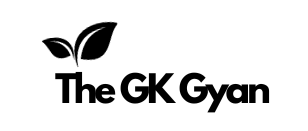In the ever-evolving landscape of customer support and service management, choosing the right help desk software can be a game-changer for businesses aiming to streamline their operations and enhance customer satisfaction. Whether you’re a small business or a large enterprise, having the right tools to manage customer queries, automate processes, and measure performance is essential. Here, we present the top 10 help desk software solutions of [current year], offering a blend of features, user-friendliness, and scalability.
1. Zendesk
Key Features:
Intuitive ticketing system
Multi-channel support (email, chat, phone)
Automation of repetitive tasks
Customizable knowledge base
Why Choose Zendesk: Zendesk stands out for its user-friendly interface and versatile features. It offers a unified platform for customer communication and issue resolution, making it a popular choice for businesses of all sizes.
2. Freshdesk
Key Features:
Multi-product support
Automation with AI-powered bots
Mobile-friendly interface
Gamification for agent motivation
Why Choose Freshdesk: Freshdesk is known for its scalability and ease of use. It offers a range of features, including AI-driven automation, making it suitable for businesses experiencing growth and evolving support needs.
3. Jira Service Management
Key Features:
Advanced IT service management
Incident and problem management
Integration with Jira Software
ITIL (Information Technology Infrastructure Library) framework
Why Choose Jira Service Management: Jira Service Management, powered by Atlassian, is a robust solution for IT service management. It excels in handling complex workflows and integrates seamlessly with Jira Software for end-to-end project management.
4. ServiceNow
Key Features:
IT service management (ITSM)
Intelligent automation
Customizable self-service portals
Performance analytics and reporting
Why Choose ServiceNow: ServiceNow is a comprehensive solution known for its ITSM capabilities. It goes beyond ticketing to offer a platform for IT operations, enabling organizations to streamline processes and enhance service delivery.
5. Kayako
Key Features:
Unified customer support platform
Real-time visitor tracking
Multi-channel conversations
Collaborative notes for agents
Why Choose Kayako: Kayako is recognized for its focus on unified customer support. It enables seamless communication across channels and provides insights into customer behavior through real-time tracking.
6. HubSpot Service Hub
Key Features:
Conversational bots for automation
Knowledge base creation
Ticketing and customer feedback
Integration with HubSpot CRM
Why Choose HubSpot Service Hub: Part of the HubSpot ecosystem, Service Hub offers a user-friendly interface and integrates seamlessly with HubSpot CRM. It is designed to enhance customer engagement and support across multiple channels.
7. HappyFox
Key Features:
Smart ticket assignment
Automated ticketing workflows
Multi-channel support
Self-service knowledge base
Why Choose HappyFox: HappyFox is known for its simplicity and efficiency. It caters to businesses of all sizes and industries, offering smart automation and customizable workflows.
8. SolarWinds Service Desk
Key Features:
IT service management
Incident and problem tracking
Change management
Asset discovery and tracking
Why Choose SolarWinds Service Desk: SolarWinds Service Desk is a robust ITSM solution that goes beyond ticketing. It offers a suite of features for comprehensive service management, including asset tracking and change management.
9. LiveAgent
Key Features:
Live chat and ticketing
Social media integration
Multi-language support
Automation of repetitive tasks
Why Choose LiveAgent: LiveAgent is recognized for its multi-channel support, combining live chat and ticketing. It is suitable for businesses looking to engage with customers across various communication channels.
10. Zoho Desk
Key Features:
Multi-channel ticketing
Automation using Zoho Flow
AI-driven analytics
Customizable dashboards
Why Choose Zoho Desk: Zoho Desk offers a comprehensive set of features for customer support, with a focus on customization. It allows businesses to tailor the platform to their unique needs and preferences.

